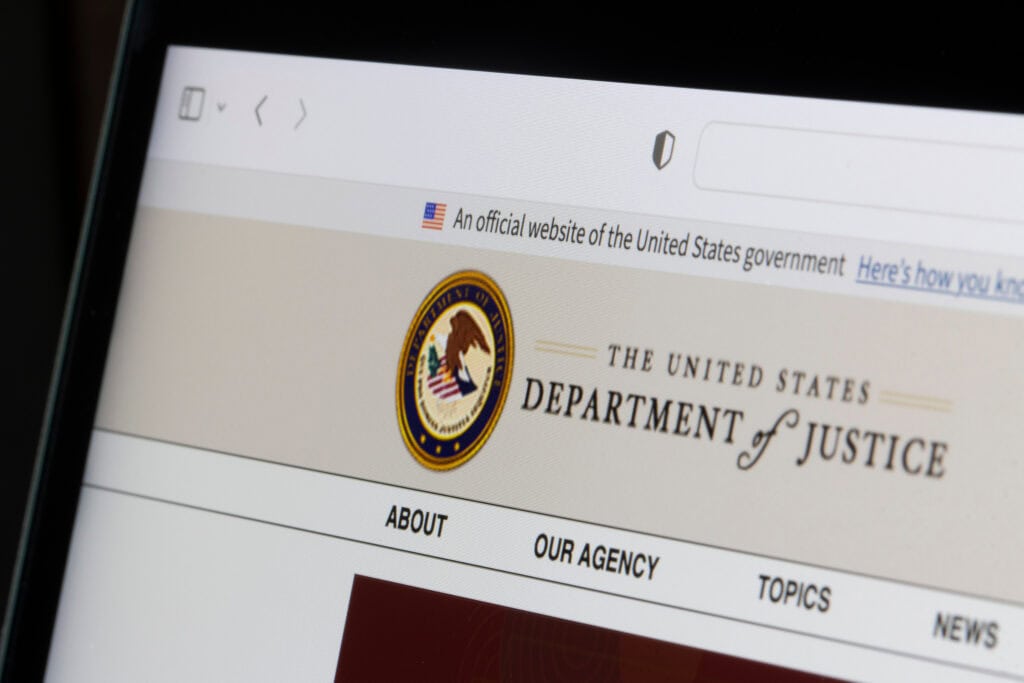
Key Takeaways:
- A coalition of 34 crypto firms, including Coinbase and Kraken, has urged Congress to address the DOJ’s broad interpretation of money transmission laws, which they argue could criminalize blockchain development.
- The group warns that the DOJ’s stance contradicts FinCEN guidance and could stifle U.S. software innovation by targeting non-custodial developers.
- This follows indictments of Tornado Cash and Samourai Wallet developers, and a lawsuit from a Coin Center fellow challenging the DOJ’s legal basis.
A coalition of 34 cryptocurrency firms and advocacy groups, including Coinbase and Kraken, is urging Congress to address the Department of Justice’s (DOJ) broad interpretation of U.S. money transmission laws.
In a March 26 letter coordinated by the DeFi Education Fund, they argue that the DOJ’s stance—used to charge developers of Tornado Cash and Samourai Wallet—threatens blockchain innovation by potentially criminalizing software development.
🚨NEW: Today, the DeFi Education Fund is proud to publish a coalition letter of industry leaders & advocates calling on Congress to correct, what in our collective view, is the DOJ’s dangerous misinterpretation of money transmission laws.
— DeFi Education Fund (@fund_defi) March 26, 2025
A thread 🧵⤵️https://t.co/ZbcifAzbj8 pic.twitter.com/AqhHDCjGc3
The letter contends that the DOJ is misapplying U.S. Code Title 18 Section 1960, which criminalizes operating an unlicensed money transmitting business, by ignoring Title 31 Section 5330 and guidance from the Financial Crimes Enforcement Network (FinCEN).
FinCEN’s 2019 guidance states developers without control over customer funds aren’t considered money transmitters.
The coalition warns that this legal ambiguity could discourage developers and jeopardize the viability of U.S.-based digital asset projects.
They call on key congressional committees to clarify the law and protect non-custodial software developers.
Meanwhile, Coin Center fellow Michael Lewellen has filed a lawsuit seeking legal protection for non-custodial software and an injunction against the DOJ, arguing that its interpretation exceeds constitutional limits.
The letter emphasizes that the current legal uncertainty could drive innovation overseas and hinder the U.S. crypto industry’s future.

